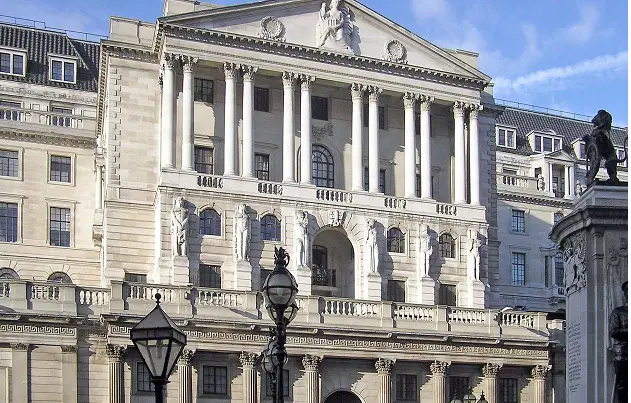As it announced it would be raising interest rates by 0.5%, the Bank of England warned the UK that by the fall it expects the economy will be thrown into recession for more than a year as inflation is pushed over 13% by rising energy costs. The interest rate hike was the largest single rate hike in 27 years.
The bank predicted five straight quarters of slowing economic activity, and a full 5% fall in real-terms living standards. The bank predicted GDP would fall by 1.25% in 2023 and 0.25% in 2024 in its baseline forecast. Those would be the first consecutive years of contractions in economic activity since the 1960’s.
In an 8-1 vote, the banks Monetary Policy Committee increased the base rate to 1.75% to attempt to relieve domestic price and wage pressures, as soaring energy prices drive inflationary forces.
Those with an average tracker mortgage will see roughly £650 to annual repayments due to the interest rate hike. There will be a roughly £170 increase in monthly tracker repayments for homeowners since rates began rising from their low of 0.1% in December.
The domestic energy cap is expected to reach about £3,500 per household in October, and that is expected to lead inflation to peak at 13.3% in Q4 of this year. From there it will remain over 10% until the middle of next year. After that, it is expected to fall to 9.5% in the third quarter and then drop back to 5.5% by Q4.
Even after government support to alleviate the effects of energy bills of at least £400 per-customer, real-living standards are forecast to fall by 1..5% this year and 2.25% next year, with a 5% decline from the peak standard to the lowest point.
The five quarter recession they are predicting ending in the first quarter of 2024 would be roughly comparable to the 2007-2008 downturn, the early 90’s downturn, or the early 80’s downturn in length, but shallower than the financial crisis, only seeing a peak to trough decline of 2.1%..
The bank’s Monetary Policy Committee blamed primarily energy prices, for the inflation, and cited supply chain issues as the other significant factor.
The MPC predicted that wages would rise 6% over this year, but predicted that as the recession takes effect next year, unemployment will rise from the present 3.8% to 5.5%.

